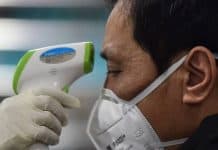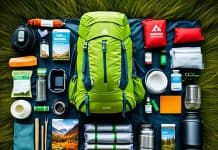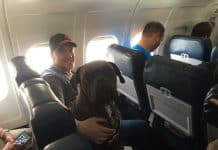After spinal fusion surgery, when to travel is up to you and what your doctor says. It depends on your healing and how stable you are.
To travel after spinal fusion surgery, plan very carefully. Your recovery could take months. Traveling can affect how your spine heals. Talk to your doctor about when it’s safe to travel again. They will also tell you how to be careful.
Evaluate your healing before you head out on a trip. This makes sure you don’t have any issues and heal well. Every person is different, so make sure to get advice from your doctor.
Key Takeaways
- Contact your doctor before making travel plans post-surgery.
- Your ability to travel safely depends on your recovery progress post-surgery.
- Recovery time can vary widely among individuals.
- Understand and follow specific precautions recommended by your doctor.
- Ensure that your travel plans are flexible to accommodate any unforeseen recovery needs.
Understanding Spinal Fusion Surgery and Recovery Timeframes
Spinal fusion surgery helps join bones in the spine. It makes your spine stronger and less painful. After the surgery, it’s crucial to take good care. This helps the healing go well.
After the surgery, you’ll need to follow some strict rules. These include not moving too much or doing things that strain your back. Healing fully can take weeks to months. This time depends on how much surgery you had and your health.
You’ll also need to do physical therapy. It helps your back get stronger and more flexible again.
Physical and Activity Restrictions During Recovery
After spinal fusion surgery, you must be careful. Avoid things like lifting heavy items, bending, or twisting. These can harm your recovery. They might make you take longer to heal. Here is a list of things you should avoid:
- Heavy Lifting: Avoid lifting objects heavier than 10 pounds until approved by a healthcare provider.
- Bending and Twisting: Limit activities that involve significant bending at the waist or twisting of the midsection.
- Extended Sitting or Standing: Alternate between sitting, standing, and walking to avoid prolonged strain on the spine.
Remember, following these rules is key to a smooth recovery. It helps you avoid problems. Stick to them for the best results.
Assessing the Risks of Traveling After Spinal Fusion
Traveling after spinal fusion surgery calls for careful thought about health. Understanding the impact of health factors after surgery is vital. It ensures you plan for a safe journey.
The Significance of Deep Vein Thrombosis (DVT) in Post-Surgery Patients
After spinal fusion surgery, deep vein thrombosis (DVT) is a big worry. Blood clots in the legs can form due to long periods of sitting while traveling. Knowing about DVT’s danger helps you take the right steps to stay safe.

To prevent DVT, make sure you move around, drink enough water, and think about using compression socks. These steps help protect your health while on the go.
Factors That Can Increase Travel-Related Risks
Several things can make travel more risky after surgery. Factors like how long you sit still, recent hospital stays, and family blood clot history are crucial. So are your age, fitness, and any medical conditions.
Understanding these travel risks guides your post-surgery trips. It helps in talking to your doctors too. This way, you plan travel that’s best for your health.
| Factor | Risk Level | Precautions |
|---|---|---|
| Prolonged immobility | High | Frequent movement, leg exercises during travel |
| Family history of DVT | Moderate to High | Consultation before travel, possible medication |
| Obesity | High | Weight management, compression stockings |
Being alert and managing these risks cuts down on serious complications. Talk with health experts to make a plan that fits your medical needs and recovery.
Strategies to Mitigate Post-Surgical Travel Complications
After spinal fusion surgery, plan your travels with care. Adhering to precautions is key for a safe trip. These steps help lower the chance of problems when you travel.
Recommended Mobility Exercises During Travel
Staying active during travel is important. It maintains your blood flow and helps prevent blood clots during travel. These exercise routines are simple. They greatly cut down your health risks.
- Gentle ankle rotations to enhance blood flow and reduce stiffness
- Shoulder shrugs and neck stretches to alleviate tension caused by long sitting periods
- Knee lifts or marching in place to keep the leg muscles active
Doing exercises during travel is key. It stops many issues from happening. Plus, these activities are doable in tight spaces, like on a plane or in a car.
Hydration and the Use of Compression Tights
Staying well-hydrated is a big need after surgery when you travel. It naturally makes your blood thinner, lessening clot risks. So, drink a lot of water as a simple give-away.
Also, using compression tights for travel is smart. They boost blood flow in your legs. Thus, they’re really good for preventing blood clots during travel.

In short, staying active and drinking enough water are crucial for post-surgery trips. Compression tights fit right into this. They’re an all-around helpful tool for safe travel. Remember these travel tips after surgery for a better journey.
Consulting Your Spine Surgeon and Setting Realistic Expectations
After spinal fusion surgery, talking to your spine surgeon is key. This step is important for getting advice that fits your recovery needs. It’s crucial for planning future travels safely. The surgeon will help you understand what’s realistic for your trips. This advice is vital in keeping you healthy and avoiding problems.
Your surgeon will give you a timeline and travel advice. They’ll look at your surgery type and how your body is recovering. They’ll make a plan just for you. This plan will help you avoid any risks when traveling. Their professional advice is a big part of taking care of yourself during recovery and future travels.
Realistic travel planning is important post-surgery. It’s more than just picking a future date. You need to know the risks and understand your body’s readiness. Being flexible is also a big part of the process. Follow the surgeon’s advice closely. It will help you get back to traveling safely.
FAQ
When is it safe to travel after spinal fusion surgery?
What is spinal fusion surgery and how long is the recovery process?
What physical and activity restrictions should I follow during the recovery period?
What are the risks of traveling after spinal fusion surgery?
What factors can increase the risks of traveling after spinal fusion surgery?
What strategies can I implement to mitigate travel complications after spinal fusion surgery?
Why is it important to consult with my spine surgeon before making travel plans?
Source Links
- https://www.mountsinai.org/health-library/discharge-instructions/spine-surgery-discharge
- https://www.orthopedicandlaserspinesurgery.com/when-is-it-safe-to-take-a-flight-after-back-surgery
- https://www.nwh.org/classes-and-resources/patient-guides-and-forms/spine-surgery-guide/frequently-asked-questions-spine












































